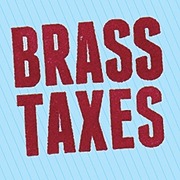What if the deadline passed, but I didn't file my tax return?
Filing and Paying Your Taxes
What if the deadline passed, but I didn't file my tax return?
Filing late is much more common than people think. The primary thing to know is that you may have to pay some additional penalties and interest on any balances owed. Even if you're a couple years late, we can help you get your taxes filed!
Last updated on 07 Nov, 2025
Sometimes taxpayers are given extra time to file when a federal disaster has been declared, such as a fire, flood, hurricane, or earthquake. If you think this might apply to you, check this page to confirm, and let us know during your appointment that you live in an impacted area.
If you know ahead of the April 15th deadline that you won't be able to file on time this year, you can always file for an extension or have us file one for you. An extension to file is not an extension to pay; you'll still need to pay any balances owed before April 15th to avoid interest charges. The extended filing deadline is October 15th.
I didn't file for an extension, or I need to file for past years. What do I do now?
We can help you file back taxes, even if you haven't filed for several years in a row. There are two general scenarios:
Your return shows you're entitled to a refund:
If your return shows that you're entitled to a refund, you won't have to pay any penalties. Why? All the penalties that the government charges for filing late are actually just interest charges on your balance due. So if you don't owe them anything, they have nothing to charge interest on. Hence, no penalty. We can help you file your return and collect your refund.
There's one caveat: The IRS only allows people to collect refunds for the prior three years. In other words, if it's 2026, you can only request refunds for tax years 2025, 2024, and 2023. So if you figure out that you were entitled to a refund for a five-year-old tax return you never filed, you won't be able to collect that money.
Your return shows you owe taxes:
If you're filing late and end up with a balance due, you are going to end up paying some of those penalties/interest charges, which generally come in a few different flavors:
Failure to Pay: If the full amount due to the IRS is not paid by the due date (whether or not you have filed for an extension), the late payment penalty is 0.5% for each month (or part of a month) the balance goes unpaid, up to a maximum of 25% of the amount owed. You can reduce this amount to 0.25% for any month where you have a payment plan set up.
Failure to File: If you owe tax and don't file on time (this includes folks who didn't file an extension or missed the extension deadline), the late filing penalty is 5% of the tax owed for each month (or part of a month) that your return is late, up to a maximum of 25% of the amount owed. If the return is more than 60 days late, the minimum penalty is the amount listed or 100% of the underpayment, whichever is less. You may be able to request a waiver for failure to file penalty if it's the first time it's happened for you and you're caught up on any other balances due.
Underpayment of Estimated Taxes: If you had freelance/untaxed income and didn't make any estimated quarterly tax payments, you may owe some additional penalties on any amounts that should have been paid quarterly during that tax year.
Interest: This can get a little complicated, because the IRS charges interest on balances due, and can also charge interest on penalties. Trying to add all that up can get a little overwhelming. But the thing to remember is that none of this should stop you from filing. Knowing the numbers is actually better than the anxiety of not knowing and not filing (we promise; we help folks do back taxes all the time, and they consistently tell us this).
How do I pay back taxes?
When you are paying the IRS for a late tax return, they'll first apply your money to the original taxes due, then they'll apply it to any penalties. Finally, they'll apply it to any interest you owe.
If you aren't able to pay the total balance owed all at once, you can set up a payment plan.
States generally have a similar set of penalties for late filing and/or payments, but there are so many variations, we can't get into them all here. That said, if you're filing late and owe state taxes, you should assume you will also owe some penalties/interest there as well.
Can I apply to reduce or remove my penalties?
Filing late can happen for many different reasons, like the federal disasters mentioned above, illness, family emergencies, or employers who don't send you your paperwork. The good news is that the IRS does offer the chance to request an abatement (i.e. removal or reduction) of your penalties if you can show reasonable cause. Many states also offer this. We can help you figure out if you are likely to qualify.
I'm several years behind. What now?
It's okay! This happens more often than you might imagine, and we help people get these situations sorted out all the time. It will take a bit of work, but it's nothing you can't handle. And at the end of the process, you won't have to carry around any anxiety about not filing. Check out our article on back taxes for tips if you're in this situation.

